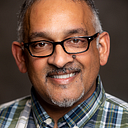Mathematics: In The Age of Brene Brown
Show up. Be Seen. Answer the call…
At some math conference, in hopefully the near future, Brene Brown will give a keynote address. When that happens, it will be a non-mathematician who reawakens the dominant narrative of mathematics — failure — and gives us more than just permission to share our own stories of failure.
She gives us passion to do so.
If there was ever a discipline that needed to heed the words of Brene Brown, it would be mathematics and its intersection with education. However, often it is in competition to eagerly share a clever solution or economical strategy, but rarely as equally as enthusiastic about sharing a wrong answer, incorrect idea, dead end path, or a simple “I don’t know”.
This all leads to a warped and skewed view of mathematics, focusing only on correctness, and only valuing struggle if and when the goal of correctness is achieved.
But, what about struggle on its own? Doesn’t that have any currency? What if the struggle just peters out into yielding to the question? Do we allow this kind of path to exist freely and honestly in math education? Not only is the disallowing of failure on its own a rejection of the history of mathematics, it creates a psychological claustrophobia of learning and teaching mathematics.
That mathematics is only worth doing if you can be correct. That mathematics can only be appreciated by being proficient. That mathematical expertise is obtainable in this narrow definition of mathematics.
All of this is false.
We not only have to admit our failures in doing mathematics, we also have to embrace the idea that mathematics is far, far more about repeated failure than repeated success.
Take the question below:
This is a high school question that I struggled with a long time. I played around with it off and on for years, eventually giving up, because I just couldn’t make the needed algebraic breakthroughs.
Did I waste my time? Absolutely not. It is part of my portfolio/story of mathematics. In my latter years as a calculus teacher, I assigned all the hard questions — something I didn’t do at the beginning of my teaching career. I knew full well that there was always going to be a question or two that I would not be able to do. And, that would be exposed.
Thankfully.
Students saw me as human. Students started to see mathematics differently. Regrettably, I would quit teaching around this time. The way that I saw mathematics was starting to run strongly counter to the anxiety-inducing performance culture of math education.
Mathematics. Just show up.
In the 19th century the most significant progress was made by Sophie Germain, a woman who, living in an era of male chauvinism, took on the identity of a man in order to conduct her research. Although Germain’s ideas eventually reached a dead-end, they generated new techniques that became valuable in tackling other problems. This was often the way with the Last Theorem — failed attempts to prove it spawned new areas of mathematical research.
At the turn of the century, Paul Wolfskehl, a German industrialist and amateur mathematician, bequeathed the equivalent of DM 100,000 for whoever could prove the Last Theorem. The story of the prize begins with Wolfskehl’s obsession with a beautiful woman whose identity has never been established. The woman rejected Wolfskehl and he was left in such a state of despair that he decided to commit suicide. He appointed a date on which to shoot himself through the head at the stroke of midnight.
In the hours before his planned suicide, Wolfskehl visited his library and began reading about the latest ideas concerning the Last Theorem. Suddenly, he believed he could see a way of proving the theorem, and became engrossed in exploring his strategy. By the time Wolfskehl realised his method was flawed, the appointed time of his suicide had passed.
Vulnerability turns out to not only be a prerequisite strength for living a wholehearted life, it is also one of the most important traits for doing mathematics, sharing mathematics, and living mathematics.
Next year, in 2020, Francis Su’s long-awaited book comes out.
It is a book for everyone. But, if we are to truly appreciate the wisdom that will be in this book, then we have to seek moments of vulnerability and offer empathy to those who exhibit fearlessness to show it.
Mathematics. Be Seen.
Just doing mathematics is not only being seen, it is also answering the call.
P.S. Thank you, Anne Paoletti Bayna(@paomaths) for inspiring this article!
